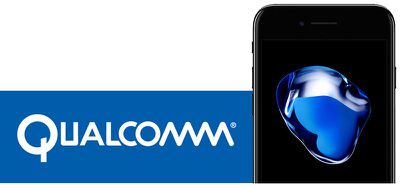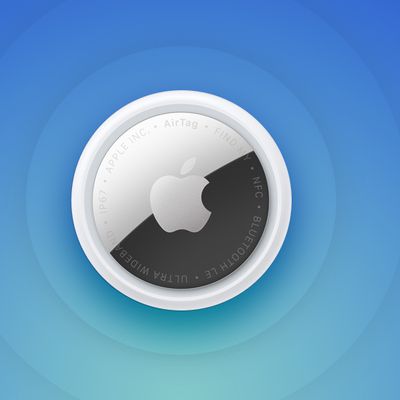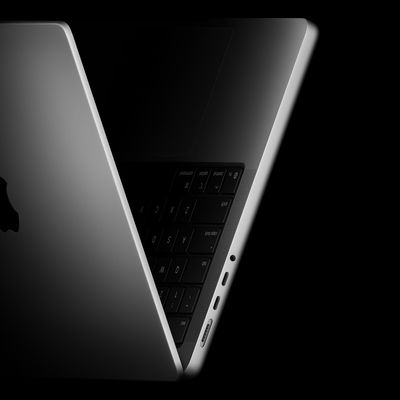Qualcomm Asks China to Stop Manufacturing and Selling iPhones via New Lawsuits
Qualcomm recently filed lawsuits in China in an attempt to stop Apple from selling and manufacturing iPhones in the country, reports Bloomberg. Much of Apple's iPhone assembly process takes place in China, as does the manufacturing of many iPhone components. China is also an important market for Apple, accounting for 22.5 percent of Apple's sales in 2016.
In a filing with the Beijing intellectual property court on September 29, Qualcomm claimed patent infringement and requested injunctive relief. "Apple employs technologies invented by Qualcomm without paying for them," said a Qualcomm spokesperson about the filing.

According to Qualcomm, the lawsuits are based on three non-standard essential patents covering power management and the Force Touch technology that Apple uses in its touch screens.
Qualcomm and Apple have been embroiled in an escalating legal battle since the beginning of this year after the FTC complained that Qualcomm engaged in anticompetitive licensing practices. Shortly after, Apple sued Qualcomm for $1 billion and accused the company of charging unfair royalties for "technologies they have nothing to do with" and failing to pay for quarterly rebates.
Apple stopped paying licensing fees to Qualcomm at that time, as did Apple suppliers. Apple maintains that Qualcomm charges excessive licensing fees by requesting a percentage of an iPhone's entire value, while Qualcomm says its technology is "at the heart of every iPhone."
Qualcomm has since countersued and filed several patent infringement lawsuits against Apple. Qualcomm has also asked the United States International Trade Commission to block imports of some iPhone and iPad models.
Qualcomm is also facing an FTC lawsuit in the U.S. for using anticompetitive tactics to remain the dominant supplier of baseband processors for smartphones and was recently fined $773 million in Taiwan for violating antitrust rules.
Popular Stories
Apple today introduced its first two physical products of 2026: a second-generation AirTag and the Black Unity Connection Braided Solo Loop for the Apple Watch.
Read our coverage of each announcement to learn more:Apple Unveils New AirTag With Longer Range, Louder Speaker, and More
Apple Introduces New Black Unity Apple Watch BandBoth the new AirTag and the Black Unity Connection Braided...
Apple today introduced the second-generation AirTag, with key features including longer range for tracking items and a louder speaker.
For those who are not familiar, the AirTag is a small accessory that you can attach to your backpack, keys, or other items. Then, you can track the location of those items in the Find My app on the iPhone, iPad, Mac, Apple Watch, and iCloud.com.
The new...
Alongside iOS 26.2.1, Apple today released an updated version of iOS 12 for devices that are still running that operating system update, eight years after the software was first released.
iOS 12.5.8 is available for the iPhone 5s and the iPhone 6, meaning Apple is continuing to support these devices for 13 and 12 years after launch, respectively. The iPhone 5s came out in September 2013,...
2026 promises to be yet another busy year for Apple, with the company rumored to be planning more than 20 product announcements over the coming months.
Beyond the usual updates to iPhones, iPads, Macs, and Apple Watches, Apple is expected to release its all-new smart home hub, which was reportedly delayed until the more personalized version of Siri is ready. Other unique products rumored for ...
Apple plans to release new MacBook Pro, MacBook Air, Mac Studio, and Studio Display models in the first half of this year, according to Bloomberg's Mark Gurman.
In his Power On newsletter today, Gurman added that redesigned MacBook Pro models with an OLED touch screen "should be hitting toward the end of 2026," meaning that the MacBook Pro line would be upgraded twice this year.
First up...





















